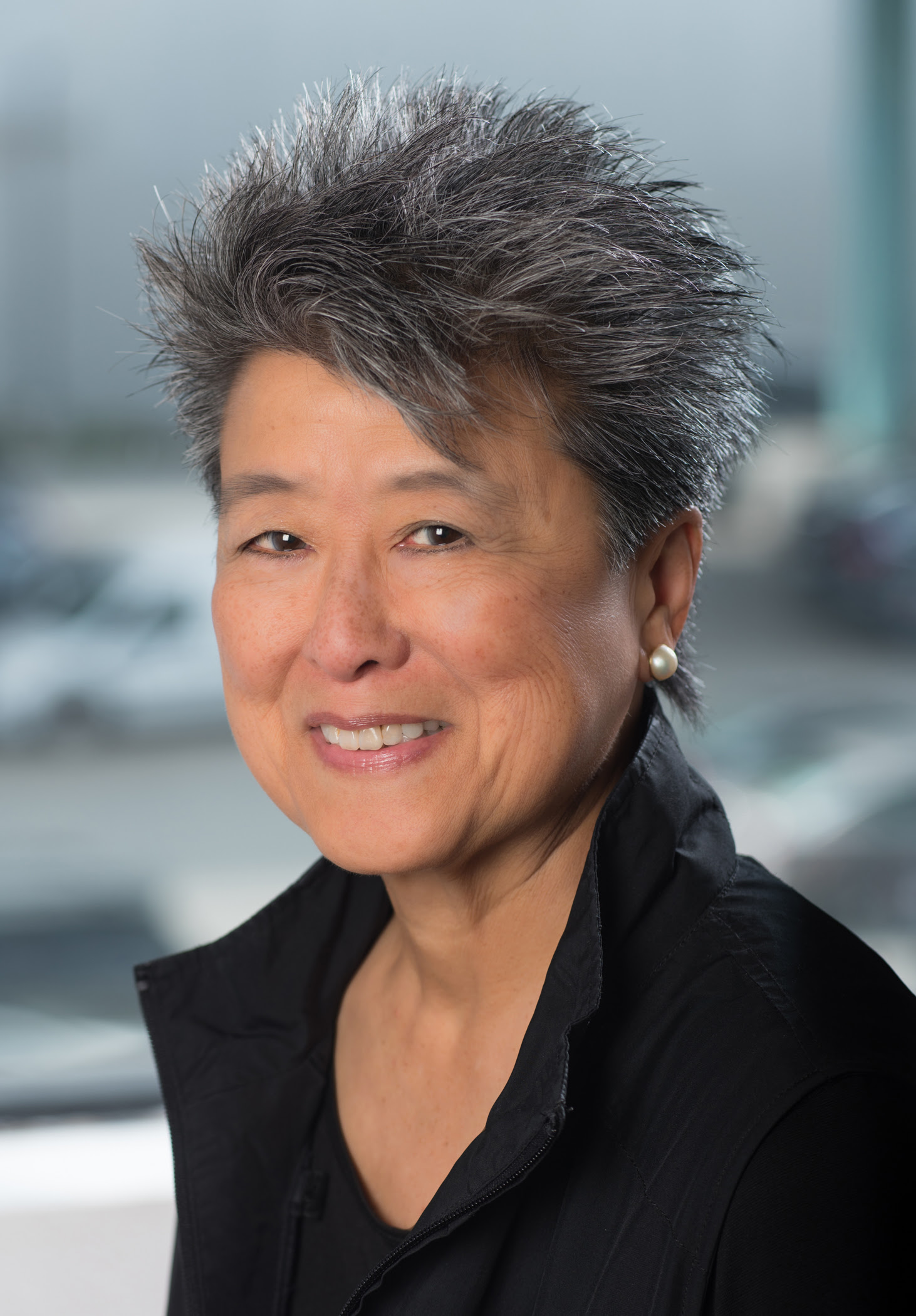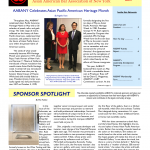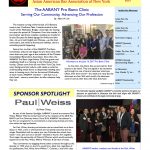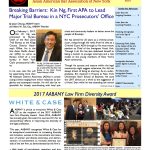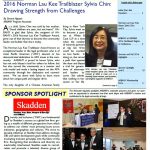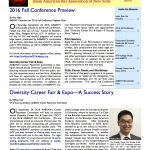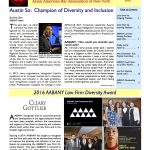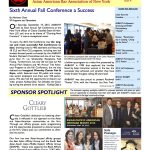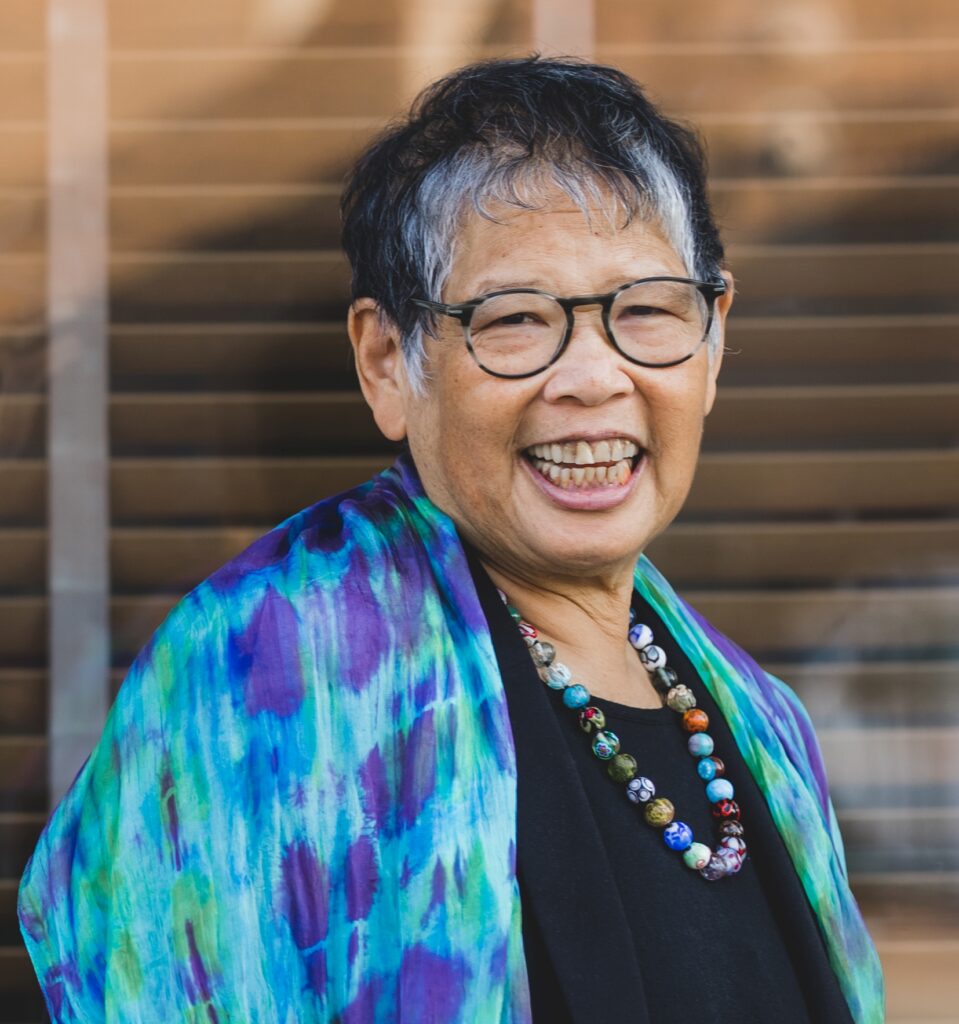
Lillian M. Moy, a lifelong advocate for civil rights and justice, is this year’s recipient of the prestigious Haywood Burns Award. Named after the legendary civil rights lawyer who collaborated with Rev. Martin Luther King Jr. and fought tirelessly for justice, the award honors individuals dedicated to social justice.
As Executive Director of the Legal Aid Society of Northeastern New York since 1995, Moy has spent decades expanding access to legal representation for low-income communities. A nationally recognized leader in civil legal aid, she has championed diversity and inclusion. Yet, in a moment that speaks to both her humility and her respect for those who paved the way, Moy admitted: “I still feel, in a way, I’m not worthy.” But if you have followed Moy’s career or had the privilege of speaking with her, she is more than worthy of this recognition.
Moy’s legal career has been defined by her constant dedication to those who need representation the most. For decades, she has fought for low-income individuals, advocating for tenants facing eviction, disabled children seeking the education they deserve, and survivors of domestic violence in need of legal protection. “I understand in a very daily way that I used my skills as a lawyer to try and level the playing field and provide justice to people who otherwise would not have gotten it,” she shared. Sometimes, that work was as simple yet significant as helping a client navigate complex paperwork to keep their home. Other times, it meant standing in a courtroom to ensure that someone with disabilities received the support they were entitled to. It was about recognizing the gaps in the system and then building the programs necessary to fill them.
Moy’s leadership in legal aid spanned Georgia, Massachusetts, and New York. As Executive Director of the Legal Aid Society of Northeastern New York, she led with integrity for twenty-seven years before retiring in 2022, creating the foundation for programs that continue to serve marginalized communities today. “My work as a legal aid lawyer really only existed because lawyers like Haywood Burns existed…. He exemplified the quest for social justice and racial justice before we even knew those words.” Through her tireless advocacy, Moy has carried forward that legacy, ensuring that the fight for justice remains as important and urgent as ever.
For Moy, receiving the Haywood Burns Award is not just an acknowledgment of past achievements; it is a challenge to continue the work, even as structural injustices remain deeply rooted. She recognizes that today’s political and legal landscape makes civil rights work even more difficult, with efforts to dismantle the very policies and programs she helped build. “In this era, our greatest work will be vilified and made invisible by the current administration. That’s a commonality I wish we didn’t have.” Despite these challenges, Moy remains hopeful. Her words reflect both realism and optimism: “I hope –I believe – that the legal community would not let [this work] die.” She believes in the power of legal aid, community organizing, and the next generation of advocates to continue the fight for justice.
Beyond her professional accomplishments, Moy’s advocacy is deeply personal. As the daughter of an immigrant father who ran a commercial laundry in New York, she understands firsthand the barriers that marginalized communities face. Her work has always been about breaking those barriers down, ensuring that economic and educational opportunities are not reserved for the privileged few. Even in retirement, Moy remains engaged in teaching, mentoring, and continuing her advocacy through pro bono work and community organizing: “I can do political work now. I can help people raise money…. In some ways, retirement is kind of freeing.”
When asked what she hoped her lasting impact would be, she did not point to the organizations she has built or the policies she has helped shape. Instead, she spoke about her family, her community, and the work that will continue beyond her own career. “Family is as big to me now as it was to my parents. The work too.” Lillian’s legacy is not just in the cases she has won or the programs she has developed; it is in the people she has inspired, the mentees she has guided, and the communities she has strengthened. So today, we do not just congratulate her. We celebrate her. We honor her. We commit to continuing the work she has spent her life fighting for.
Congratulations, Lillian M. Moy, on this well-deserved honor. Her lifelong commitment to justice, leadership, and compassion has transformed countless lives and strengthened the legal community. The world is a fairer and more equitable place because of her relentless pursuit of civil rights and belief in the power of the law to create meaningful change.
Join the celebration honoring Lillian M. Moy, Esq., at the Haywood Burns Memorial Award Ceremony on April 3 at CUNY Law School. Be sure to register here by March 27 to attend.


